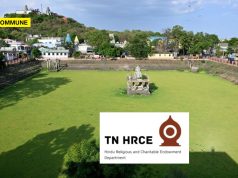
The NDA government under PM Modi plans to present the highly discussed Waqf (Amendment) Bill, 2024, in the lower house of Parliament on 8 August 2024. The proposed legislation seeks to revise the Waqf Act of 1995, which governs Waqf boards. The Bill proposes 44 amendments intended to repeal specific provisions of the current Waqf Act.
These changes aim to adjust the existing regulations overseeing Waqf boards substantially. Significantly, the Bill seeks to increase the representation of Muslim women and non-Muslims in Waqf boards, demonstrating a commitment to inclusivity and diversity.
Historical moment: Modi Govt presents Waqf Amendment Bill in the Loksabha..
Enjoy the Meltdown!!! pic.twitter.com/aiTvRTjpGL
— Mr Sinha (@MrSinha_) August 8, 2024
Advocate Vishnu Shankar Jain who has been very vocal about the misuse of the Waqf Act welcomed the proposed Bill. He took to his X handle and wrote, ” Very well researched waqf amendment bill 2024 has been prepared by the central govt. I thank the government for understanding the issue and bringing legislative changes. This bill will solve the issue and stop the illegal activities under the garb of waqf.”
A look at the amendments in question:
Aghakhani And Bohra Waqf
Amendment of Section 3: This amendment introduces new definitions and modifies existing ones, including definitions for “Aghakhani waqf” and “Bohra waqf,” as well as terms like “Collector,” “Government Organisation,” and “Government property.” It also specifies that waqf creation must be formal and introduces a “portal and database” for waqf information.
Amendment of Sections 6 and 7: This amendment includes Aghakhani and Bohra waqfs in the list of disputes and removes the clause making the Tribunal’s decisions final, aligning the Tribunal’s dispute resolution authority with the broader judicial system.
Amendment of Sections 13 and 14: This change establishes separate Auqaf Boards for Bohras and Aghakhanis and expands the composition of the State Waqf Boards to include non-Muslim members, ensuring broader representation.
Does the Govt Own The Land Or Is It The Waqf?
New Sections 3A, 3B, and 3C: These sections set conditions for creating a waqf, requiring the creator to be the legal owner and capable of transferring the property. They also mandate the registration of waqf properties on a central portal within six months, including detailed information about the property, creator, deed of waqf, management, income, and expenses.
According to Section 3C:
- Any property identified or declared government property before or after this Act begins will not be considered waqf property.
- If there is any question about a property’s status as government property, it will be referred to the Collector, who will investigate, determine the property’s status, and report to the State Government. Until the report is submitted, the property will not be treated as waqf’s.
- If the Collector concludes that the property is government property, corrections will be made in the revenue records, and the report will be sent to the State Government.
- Following receipt of the Collector’s report, the State Government will instruct the Board to update the records accordingly.
Amendment of Section 4: This change replaces Survey Officers with the Collector for conducting waqf surveys in compliance with State revenue laws.
Amendment of Section 5: New sub-sections require uploading the list of auqaf on the central portal and issuing a public notice before deciding on land mutations.
Central Waqf Council To Include Non-Muslims
Amendment of Section 9: This amendment expands the Central Waqf Council to include non-Muslim members, promoting inclusivity.
The Council shall consist of the following members:
- The Union Minister in charge of waqf, serving as the Chairperson ex officio.
- Three Members of Parliament, including two from the House of the People and one from the Council of States.
- Members appointed by the Central Government from among Muslims, including:
- Three individuals representing significant Muslim organizations.
- Chairpersons of three Boards, appointed on a rotating basis.
- One person representing mutawallis of waqf with an annual income of five lakh rupees or more.
- Three prominent scholars in Muslim law.
- Two former Supreme Court or High Court judges.
- One nationally renowned advocate.
- Four distinguished individuals in the fields of administration or management, financial management, engineering or architecture, and medicine.
- The Additional Secretary or Joint Secretary from the Union Ministry dealing with waqf matters, serving ex officio.
- Two of the members appointed must be women.
- Additionally, two members must be non-Muslims.
Amendment of Section 16: This change introduces conviction with a sentence of two years or more as a reason for disqualification from the Board.
Amendment of Section 17: This amendment mandates that the Council must convene at least once a month.
Omission of Section 20A: Section 20A is entirely removed from the Act.
Amendment of Section 23: The new sub-section requires the Board to have a full-time Chief Executive Officer appointed by the State Government, at least at the rank of Joint Secretary to the State Government.
Amendment of Section 32: Sub-section (2), clause (e) removes the Explanation and proviso. Sub-section (3) eliminates the finality of the Tribunal’s decision.
Amendment of Section 33: Sub-section (4) removes the Tribunal’s power to stay the Chief Executive Officer’s orders. Sub-section (6) is also omitted.
No Registration On Waqf Portal If Property Is Disputed
Amendment of Section 36: Starting with the Waqf (Amendment) Act, 2024, a waqf deed is required to create a waqf. Registration must be completed through the central portal, with details specified by the Central Government. If a waqf deed is missing, full details are not required. The Collector will verify the validity of the application. Disputed or government-owned properties will not be registered until resolved by a court. The previous rule on registration details has been removed. Additionally, once a waqf is registered, a certificate will be issued through the portal, and no legal action can be taken for unregistered waqfs six months after the Act begins.
Amendment of Section 37: Sub-section (1) requires details to comply with rules set by the Central Government and changes “provided by regulations” to “prescribed by the Central Government.” Sub-section (3) now mandates a public notice before altering land records. This notice must be published in two daily newspapers, including one in the local language, giving affected individuals the opportunity to respond.
Waqf Will Not Decide Which Property Belongs To Them
Amendment of Section 40: This amendment removes the section that granted the Board the authority to decide if a property is waqf property.
All Financial Reports To Be Submitted To Centre
Amendment of Section 46: This change adjusts the deadlines and details required for submitting financial reports to the central government.
Amendment of Section 47: This amendment alters the requirements for audits and the process for appointing auditors for waqf properties. It stipulates that audits may be conducted by a panel appointed by the State Government or directed by the Comptroller and Auditor-General of India, with audit reports published as specified by the Central Government.
Amendment of Section 48: This amendment introduces provisions for how audit reports should be published and how notices for objections should be issued.
Who Can Be A Mutawalli?
Insertion of Section 50A: A new Section 50A disqualifies individuals from being appointed or continuing as a mutawalli if they:
- Are under 21 years old,
- Are mentally unsound,
- Are an undischarged insolvent,
- Have been convicted of a crime and sentenced to at least two years in prison,
- Have encroached on waqf property,
- Have previously been removed as a mutawalli or by a court/tribunal for mismanagement or corruption.
Amendment of Section 52: In sub-section (4), the provision making the Tribunal’s decision on appeals final has been removed.
Punishment For Violators
Amendment of Section 52A: Changes include replacing “rigorous imprisonment” with “imprisonment”. It also includes returning property to the waqf rather than the Board. Also, it removes sub-sections (2) and (4).
Amendment of Section 55A: The clause stating finality of the Tribunal’s decision has been removed.
Amendments to Section 61: This section updates penalty rules, imposing fines between twenty thousand and fifty thousand rupees for failing to meet requirements without justification. New penalties include imprisonment of up to six months and fines ranging from twenty thousand to one lakh rupees for mutawallis who do not hand over property, follow instructions, provide accounts, or upload details. Some previous clauses (e) and (f) have been removed.
Amendments of Section 64: The rules for maintaining accounts have been updated. Penalties will be applied for improper account keeping or failure to submit yearly statements within a year. Additionally, members of unlawful associations under the Unlawful Activities (Prevention) Act of 1967 are now disqualified. The provision making the Tribunal’s decision on appeals final has also been removed.
Amendment of Section 65: Sub-section (3) specifies that tasks must be completed within six months.
Amendment of Section 67: It allows a 60-day period to appeal to the Tribunal. It also removes the provision that the Tribunal’s decision is final.
Amendment of Section 69: One rule has been eliminated, and a new requirement has been added for public notice and inviting objections before making decisions.
Amendment of Section 72: The interest rate has been revised from seven to five per cent, and the provision making the Board’s decisions final has been removed.
Amendment of Section 73: The rule that makes the Tribunal’s decision on appeals final has been removed.
Tribunal Or High Court To Handle Waqf Disputes
Amendment of Section 83: Other Tribunals may now be assigned to handle this Act. If no Tribunal functions, appeals can be made to the High Court. Tribunals must have two members: a District Judge (Chairman) and a Joint Secretary. The Chairman can act alone if the other member is absent. The Chairman and member can serve for a maximum of five years or until they turn 65, whichever comes first. The provision making Tribunal decisions final has been removed, allowing appeals to the High Court within 90 days.
Amendment of Section 84: Decisions must be made within six months of the application, with an additional six months allowed if reasons are recorded.
Amendment of Section 91: References have been updated from the old Land Acquisition Act to the 2013 Act, and the decision-making period has been shortened from three months to one month. New rules delay orders if the Board claims the property.
Amendment of Section 100: The term “Survey Commissioner” has been replaced with “Collector.”
Amendment of Section 101: All references to “Survey Commissioner” have been changed to “Collector.”
Amendments of Sections 104 and 107: These amendments omit the Act’s application to properties donated by non-Muslims and the provision making the Limitation Act, 1963, inapplicable to waqf property recovery.
Amendments of Sections 108 and 108A: They remove sections concerning special provisions for evacuee waqf properties and the Act’s overriding effect.
Insertion of Section 108B: This new section grants the Central Government the authority to create rules under the Act.
Amendment of Section 109: It modifies the power to create rules, specifying matters for which rules can be established.
Amendment of Section 110: It revises the Board’s power to make regulations. It also includes procedural and administrative details such as notifications and notices.
Financial And Delegated Legislation
The financial memorandum indicates that no additional financial expenditure is required. Its provisions for delegated legislation allow the Central Government to make detailed rules for the Act’s implementation. The bill is expected to pass both houses of Parliament before being signed into law by the President.
Since its inception, the Waqf has faced significant scrutiny due to legal disputes and irregularities. There have been widespread demands for its abolition or a revision of the relevant legislation. The proposed amendments address these concerns by increasing government oversight and enhancing transparency and accountability in Waqf operations.
(With inputs from Organiser)
Subscribe to our channels on Telegram, WhatsApp, and Instagram and get the best stories of the day delivered to you personally.




